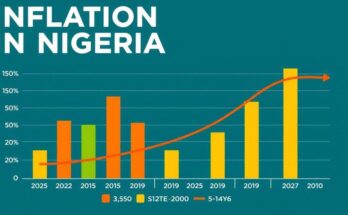With tariffs imposed by President Trump on China, Mexico, and Canada, both Canada and China have initiated countermeasures to protect their economic interests. Canada plans to impose 25 percent tariffs on U.S. imports beginning Tuesday, while China opposes the U.S. measures claiming them to be unreasonable. Mexico is also preparing a response, indicating potential ramifications for North American trade relations.
As the tariff increases imposed by President Donald Trump on Mexico, Canada, and China go into effect, both Canada and China are preparing their counteractions to protect their economic interests. Prime Minister Justin Trudeau of Canada announced that retaliatory tariffs on U.S. goods will start on Tuesday, emphasizing the lack of justification for the U.S. measures and the potential consequences on American consumers and workers, while also acknowledging disruptions to the established trade relationship.
Canada’s response will involve imposing 25 percent tariffs on U.S. imports valued at $155 billion over 21 days, with immediate taxes applied to $30 billion worth of goods. Trudeau warned that the U.S. tariffs would lead to increased prices for groceries, gas, and automobiles in the United States, potentially jeopardizing thousands of American jobs. He criticized the actions taken by the U.S. as violations of trade agreements established during Trump’s previous term.
On the other hand, China’s commerce ministry has expressed strong opposition to the U.S. tariffs, which they view as unreasonable and illegal claims related to fentanyl manufacturing. The ministry vowed to implement countermeasures to protect China’s rights, asserting that the U.S. has unjustly shifted blame onto China concerning drug issues. They urged an immediate withdrawal of tariffs deemed harmful to both sides.
Mexico is also preparing to respond, with President Claudia Sheinbaum indicating that a public declaration would be made following Trump’s announcements. The Mexican government previously avoided the initial round of tariffs through a deal to reinforce border security. As the situation unfolds, Sheinbaum emphasized a unified response with strategic plans in place, contingent on the U.S. decisions.
The introduction of these tariffs by President Trump also raises concerns of escalating trade conflicts in North America, fuelling inflationary pressures and hindering economic growth. Trump has raised tariffs on all Chinese goods to 20 percent as a measure against perceived failures to curb fentanyl exports. Investor Warren Buffett criticized these tariff policies, likening them to a tax on consumers and suggesting they could be compared to acts of war.
In summary, the tariff increases by President Trump have prompted swift retaliatory actions from Canada, China, and Mexico. Canada will impose 25 percent tariffs on U.S. imports, while China has announced countermeasures to protect its interests. Mexico remains poised to respond, demonstrating a united front against these tariffs that could disrupt trade and impact economies across North America. Investor reactions, such as that of Warren Buffett, further illustrate the potential negative implications of these tariff policies on consumers.
Original Source: www.ndtv.com




